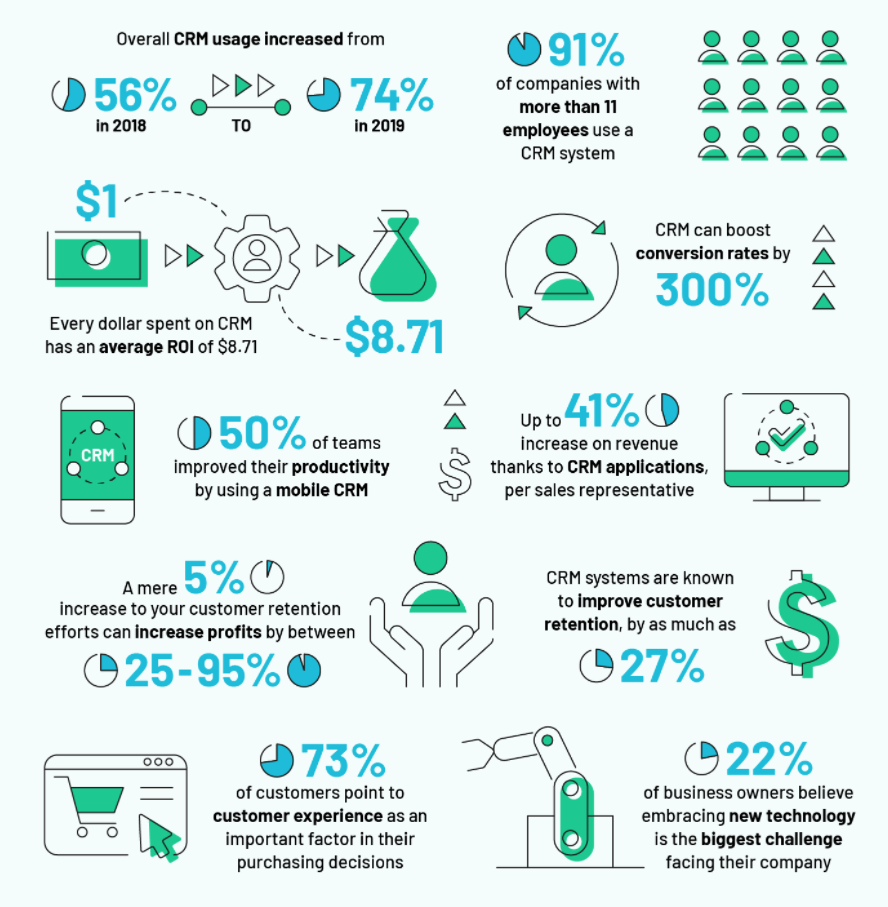The Cost-Benefit of CRM Software: Is it Worth the Investment?
The Cost-Benefit of CRM Software: Is it Worth the Investment?

The Cost-Benefit of CRM Software: Is it Worth the Investment?
In today’s fast-paced business world, companies are constantly looking for ways to stay ahead of the competition. One way to do this is by implementing a Customer Relationship Management (CRM) system. But is the cost of CRM software worth the benefits it provides? In this article, we’ll explore the cost-benefit of CRM software and help you decide if it’s right for your business.
What is CRM Software?
Before we dive into the cost-benefit of CRM software, let’s first define what it is. CRM software is a tool that helps businesses manage their interactions with customers, clients, and sales prospects. It provides a centralized platform for storing customer data, tracking interactions, and analyzing customer behavior. CRM software can be used to automate sales, marketing, and customer service processes, making it easier to build strong relationships with customers and grow your business.
The Benefits of CRM Software
So, what are the benefits of CRM software? Here are just a few:
- Improved Customer Relationships: CRM software helps you build strong relationships with your customers by providing a centralized platform for storing customer data and tracking interactions.
- Increased Sales: By automating sales processes and providing real-time visibility into customer behavior, CRM software can help you close more deals and grow your sales.
- Enhanced Customer Service: CRM software provides a platform for customer service teams to manage customer issues and provide timely support.
- Marketing Automation: CRM software can automate marketing processes, such as email marketing and lead nurturing, making it easier to reach new customers and grow your business.
- Data Analysis: CRM software provides real-time analytics and reporting, giving you insights into customer behavior and helping you make data-driven decisions.

The Cost of CRM Software
Now that we’ve explored the benefits of CRM software, let’s talk about the cost. The cost of CRM software varies widely depending on the type of software, the number of users, and the features you need. Here are some general estimates of the cost of CRM software:
- Basic CRM Software: $10-$50 per user per month (e.g., HubSpot, Zoho)
- Mid-Level CRM Software: $50-$100 per user per month (e.g., Salesforce, Microsoft Dynamics)
- Enterprise-Level CRM Software: $100-$500 per user per month (e.g., SAP, Oracle)
In addition to the monthly fee, you may also need to pay for:
- Implementation: $1,000-$10,000 (depending on the complexity of the implementation)
- Training: $500-$1,000 (depending on the number of users)
- Customization: $1,000-$10,000 (depending on the level of customization)
The Cost-Benefit of CRM Software
So, is the cost of CRM software worth the benefits it provides? Here are some examples of how CRM software can provide a return on investment (ROI):
- Increased Sales: A company that implements CRM software may see a 20% increase in sales revenue, resulting in a ROI of 200% (assuming a cost of $50 per user per month).
- Improved Customer Retention: A company that implements CRM software may see a 30% decrease in customer churn, resulting in a ROI of 300% (assuming a cost of $50 per user per month).
- Increased Efficiency: A company that implements CRM software may see a 25% decrease in sales and marketing costs, resulting in a ROI of 250% (assuming a cost of $50 per user per month).
Real-Life Examples
Here are some real-life examples of how companies have benefited from CRM software:
- American Express: Implementing a CRM system helped American Express increase customer retention by 20% and improve sales by 15%.
- Eaton: Implementing a CRM system helped Eaton reduce sales and marketing costs by 25% and improve customer satisfaction by 20%.
- Dell: Implementing a CRM system helped Dell increase sales by 15% and improve customer retention by 25%.
Conclusion
In conclusion, the cost-benefit of CRM software is clear. While the cost of CRM software may seem high, the benefits it provides can far outweigh the costs. By improving customer relationships, increasing sales, and enhancing customer service, CRM software can provide a significant ROI for businesses of all sizes.
Recommendations
Here are some recommendations for businesses considering implementing CRM software:
- Start Small: Start with a basic CRM system and scale up as your business grows.
- Choose the Right Software: Choose CRM software that meets your specific needs and is easy to use.
- Train Your Team: Provide training to your sales and marketing teams to ensure they use the CRM software effectively.
- Measure the ROI: Track the ROI of your CRM software to ensure it’s providing the benefits you need.
Final Thoughts
The cost-benefit of CRM software is clear. By investing in a CRM system, businesses can improve customer relationships, increase sales, and enhance customer service. While the cost of CRM software may seem high, the benefits it provides can far outweigh the costs. By following our recommendations and measuring the ROI of your CRM software, you can ensure that your investment is worth it.
